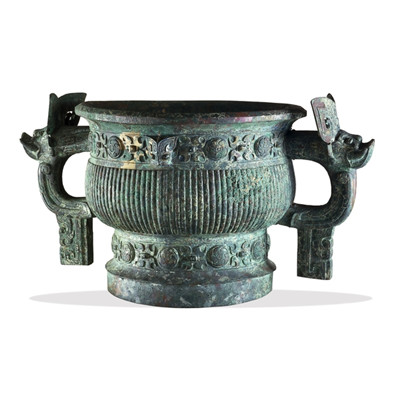Here in the west, we have the concept of democracy, and in China it's the Mandate of Heaven.
它内在的图腾含义相当于西方的民主概念。
For example, you can see if you offend the heaven, or offend the people, then you will see the omens from heaven - thunder, rain, earthquake.
在中国,如果你触犯了神灵,或违背了民心,就会有凶兆预警—雷电、暴雨或地震。
That's why every single time that China has an earthquake, the political rulers were scared, because they were reading that as some kind of Mandate of Heaven.
中国的每一次地震都让当权者恐惧,因为他们将其看作违抗天命的后果。
So the Zhou's ritual feasting with vessels like our gui was in part a public assertion that the gods endorsed the new regime.
本节中这样的簋在中国各地都有出土,
Gui such as ours have been found over a wide swathe of China, because the Zhou conquest continued to expand until it covered nearly twice the area of the old Shang kingdom.
因为周朝继续征战,最后的统治面积达到了商朝的两倍。
It was a cumbersome state, with fluctuating levels of territorial control.
这是一个过于庞大的国家,领土面积不断波动。
But nonetheless, the Zhou Dynasty lasted for as long as the Roman Empire, and indeed longer than any other dynasty in Chinese history.
但它的统治期仍相当于罗马帝国,是中国历史上存在时间最长的王朝。
And as well as the Mandate of Heaven, they bequeathed one other enduring concept to China.
除天命之外,周朝还留下了另一个影响深远的概念。
It was the Zhou, who three thousand years ago gave to their lands the name of Zhongguo: the Middle Kingdom'.
三千年前,他们称自己的国土为中国,意为中央的国度。
And the Chinese have thought of themselves as the Middle Kingdom, placed in the very centre of the world, ever since.
此后中国人一直将自己看作世界的中心。













